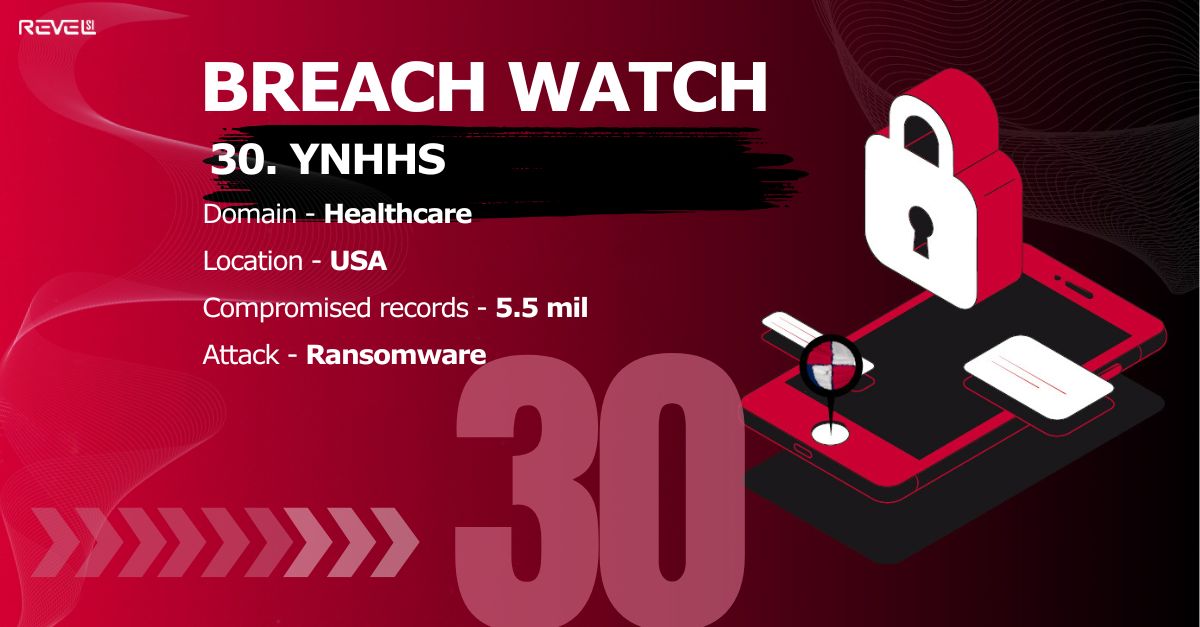5.5 Million Records Exposed: Inside the Yale New Haven Health Data Breach

Overview
In March 2025, Yale New Haven Health System (YNHHS), one of the largest healthcare providers in the northeastern United States, confirmed a major data breach that compromised sensitive information belonging to approximately 5.5 million individuals. The incident stands out not just for its scale, but for the type of data exposed—personally identifiable information that can’t be easily replaced or re-secured.
Although the breach did not affect the organization’s electronic medical records or financial systems, the leaked data included names, birthdates, contact information, Social Security numbers, and medical record identifiers—enough to fuel long-term identity theft and fraud risks.
How It Happened
The breach was detected on March 8, 2025, when unusual activity within YNHHS’s IT environment triggered internal alarms. A deeper investigation, aided by cybersecurity experts, confirmed that an unauthorized third party had infiltrated the network and extracted sensitive data.
While YNHHS has not disclosed the exact method used, external analysts believe the attackers may have employed sophisticated malware tools such as keyloggers and screen capture software. These tools can silently harvest credentials and other private data from compromised endpoints without triggering standard antivirus defenses.
Interestingly, no ransomware group has come forward to claim responsibility, and there have been no public reports of ransom demands. This silence, combined with the stealthy techniques believed to be used, suggests a targeted and potentially state-linked operation rather than a conventional cybercriminal campaign.
Risks
Although YNHHS quickly confirmed that no clinical records or payment information had been accessed, the stolen data still poses serious risks to affected individuals. Identity theft, fraudulent insurance claims, and spear-phishing attacks are just some of the potential downstream effects.
In healthcare, even partial data can be devastating. A name, a birthdate, and a Social Security number are often all that’s needed to open fraudulent accounts or submit fake claims. And once such information is leaked, it remains vulnerable indefinitely.
This breach also signals broader challenges within the healthcare industry. Complex legacy systems, limited network segmentation, and heavy dependence on third-party tools create large and often poorly defended attack surfaces. Cybercriminals are exploiting these weaknesses with growing precision.
Conclusion
The Yale New Haven Health data breach is a stark reminder that cybersecurity in healthcare is about more than just protecting systems—it’s about protecting people. The fallout of this attack will likely linger for years, especially for those whose most sensitive details were exposed.
YNHHS is offering credit monitoring and identity protection to affected individuals and has taken steps to improve its defenses. But this incident should serve as a wake-up call across the sector. Healthcare providers must invest not just in advanced technology, but in a culture of security that spans every endpoint, every login, and every employee interaction.
In an age where patient care depends on digital trust, cybersecurity has never been more human.
